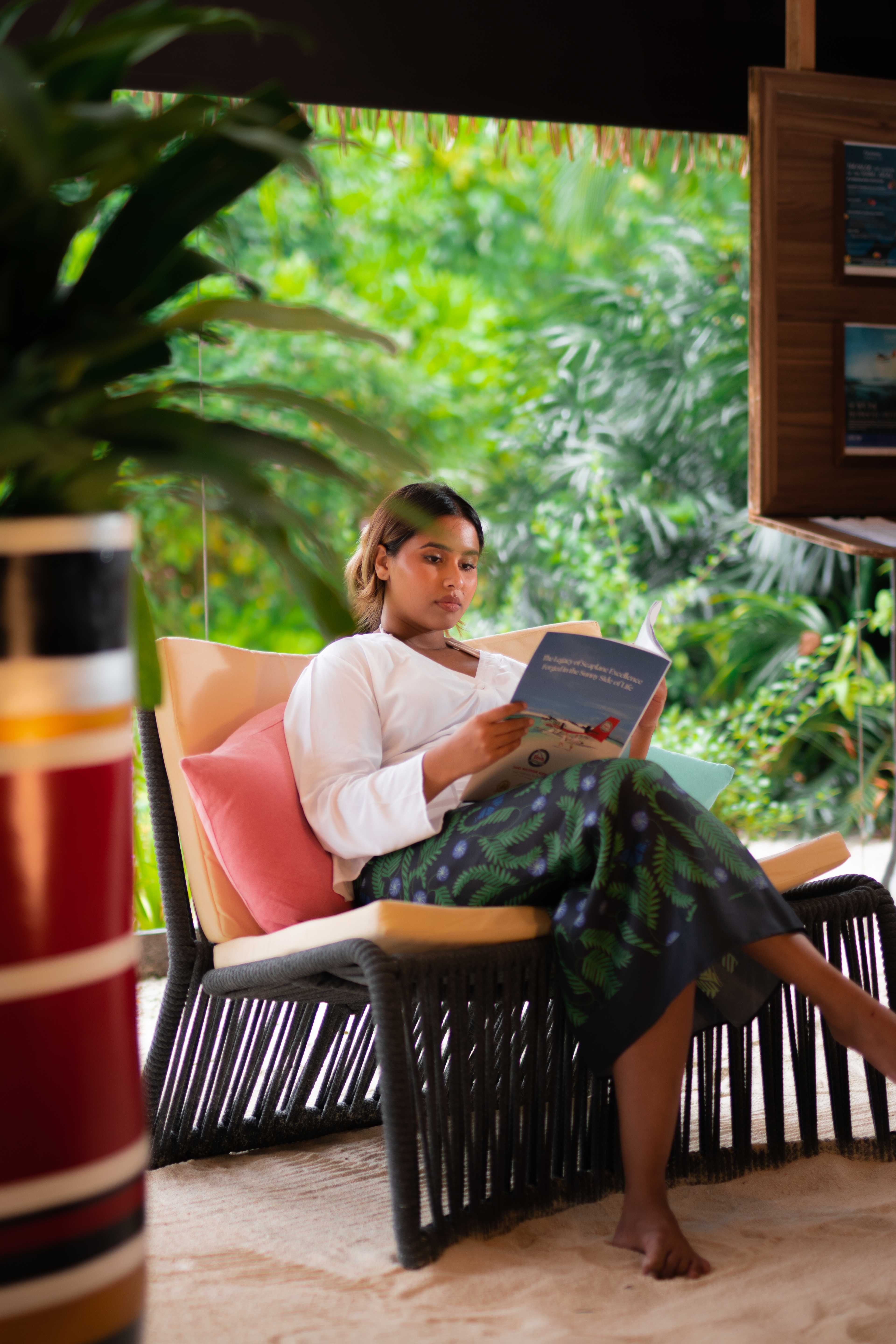Written By: Naufi Amjad
What can one say about raivaru, a form of poetry almost lost in the sands of time? This ancient Maldivian oral tradition was once a vibrant part of daily life, now it lingers on the fringes of modernity - yet it carries the whispers of a simpler, more melodic time. A time when words danced on tongues, and verses flowed as naturally as the waves on the shore. The lyrical sounds of raivaru were woven into the fabric of Maldivian life, expressing love, laughter, and the playful exchanges of the island communities.
Once upon an age, raivaru was more than just poetry; it was the heartbeat of communication. Islanders would exchange verses while tending to daily tasks – women collecting coconuts, men gathering under the shade of trees to jest with each other, or even social critique directed at the powers that be. The verses carried messages of love, flirtation, and mockery, all wrapped up in a delicate rhythm that mirrored the ebb and flow of the ocean itself. Each raivaru was unique, with words that could be playfully rearranged, allowing the speaker to express themselves in clever and often humorous ways.

This free-form expression of raivaru was spontaneous and artistic, the words crafted to roll off the tongue with a melodic charm. In its early days, raivaru had no strict structure; rather, it was a fluid and dynamic form of speech. Later, however, it was codified – perhaps to the dread of today’s school children– into stanzas of three to six lines, with specific rules governing the arrangements of syllables and sounds.
A performance of raivaru is not complete without its signature rhythm and melody. Traditionally, the poetry was recited without music, relying instead on the natural cadence of the speaker’s voice. This gave the verses a hypnotic quality, a lilting melody that made each recitation a unique performance. In the past, one might have heard raivaru recited under the stars during island gatherings or within the solemn courts of Maldivian sultans. In the royal courts, raivaru could be used as praise or, more cleverly, as veiled criticism of rulers.
As the Maldives has modernized, raivaru has gradually faded from the spotlight (with natural and casual use within communities dying off around the 1950s). Today it survives mainly in classrooms, where students reluctantly learn its structure. However, this formal education strips raivaru of its once-vibrant spontaneity, leaving many young Maldivians disconnected from its deeper meaning.
For older generations, raivaru remains a treasure, a reminder of a time when words and music were intertwined with everyday life. Efforts have been made to preserve this art form, but in an era dominated by globalized culture and modern entertainment, raivaru struggles to find a foothold. However, it continues to hold cultural significance, offering a window into Maldivian history and identity.
.jpg&w=3840&q=75)
Ultimately, raivaru is more than just an ancient form of poetry. It is a testament to the creativity, humor, and emotional depth of the Maldivian people. Its words once served as a bridge between individuals, whether expressing love, jest, or critique, and though it may no longer hold the central role it once did, raivaru remains a crucial part of Maldivian culture. For those willing to listen, its verses still echo the rhythm of the ocean and the spirit of the islands.
In a world that moves ever faster, the slow, melodic cadence of raivaru reminds us to pause, listen, and appreciate the artistry of the spoken word—a tradition that, though fading, continues to leave its mark on the Maldivian soul.
.jpg&w=3840&q=75)


.jpg&w=3840&q=50)
.jpg&w=3840&q=50)


